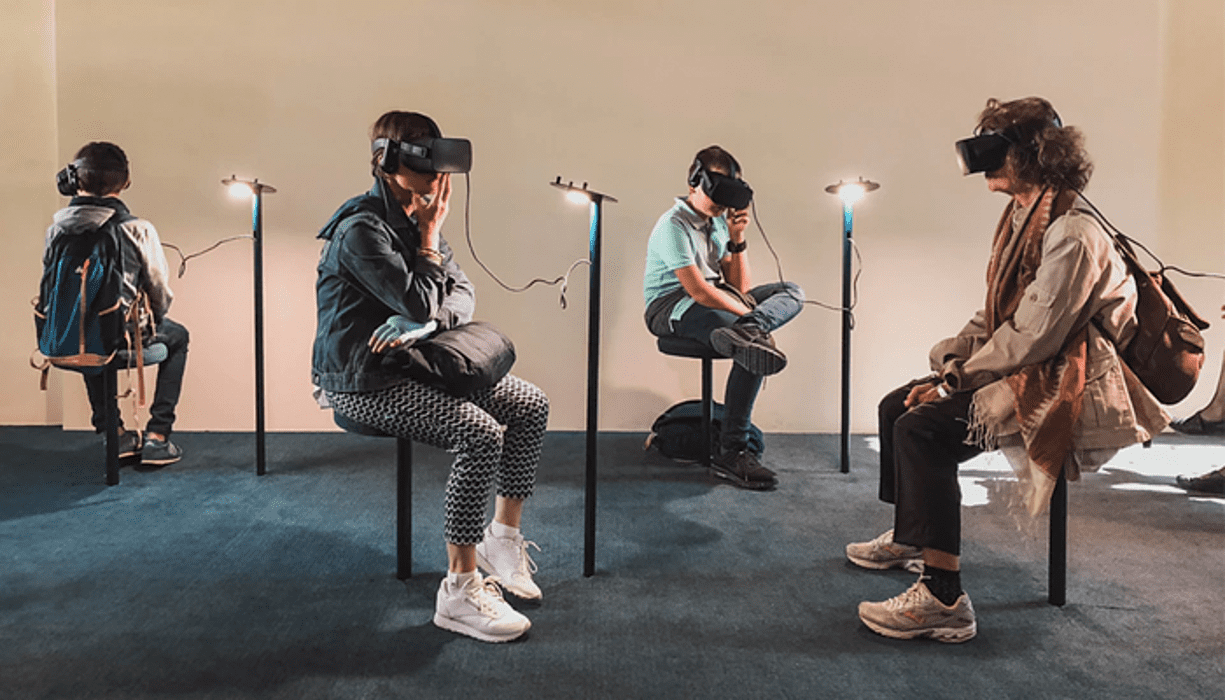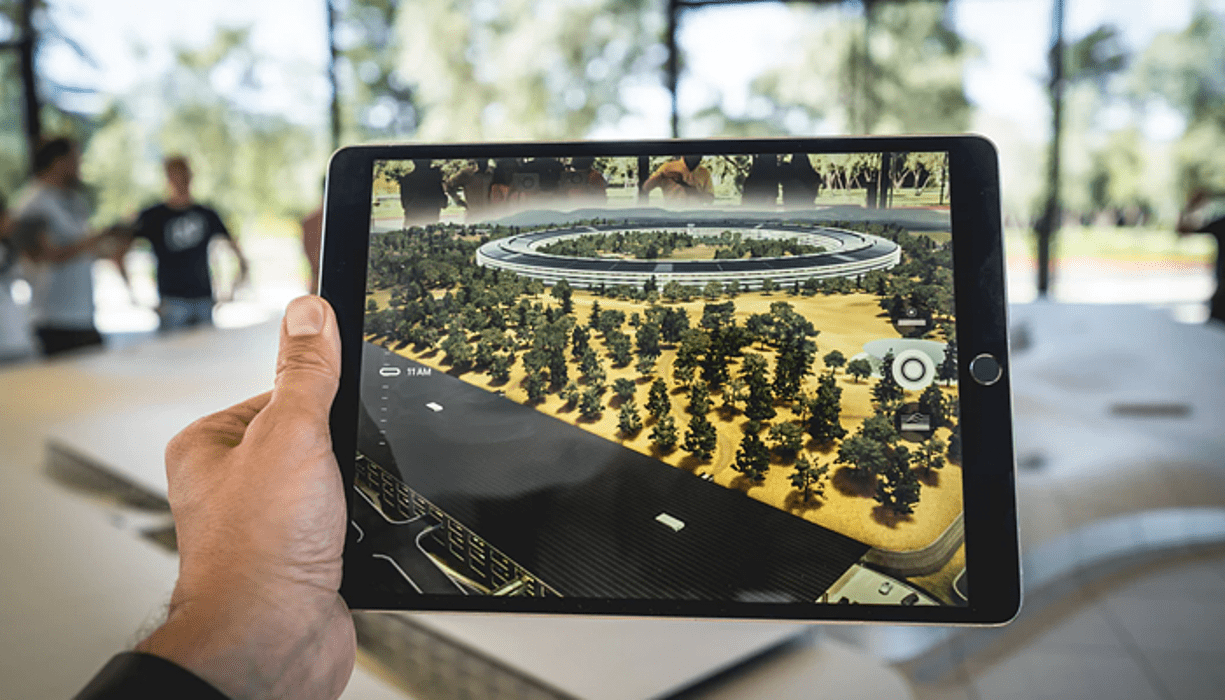

From the days of analog computers to present day’s smart devices, technology has leapfrogged to a new level altogether. Thanks to the constant evolution in tech; now we can alter the realities through innovations like Augmented Reality (AR) and Virtual Reality (VR).
In technical terms, Virtual Reality allows the creation of an entirely new world and is induced using tools such as VR glasses and VR headsets. Whereas, Augmented reality is a concept little closer to the real world, where the existing environment is altered around an individual.
With their wide array of applications, AR and VR technologies have gained a lot of traction across the globe. And now it's time that we leverage these technologies in the business fields as well.
In this article, we will be focusing on the concept of AR technology and will discuss its benefits and ways to boost business using this technology.

How AR Helps in Boosting Business?
As mentioned above, companies can vastly benefit from integrating AR technology within their business and build tools based on the same.
Here are a few noteworthy benefits of AR:
1. Optimized Employee Collaboration
Augmented reality can bridge the communication gap between employees, which further strengthens the employee's collaboration on projects. AR allows them to convey their ideas easily to one another in a visual format.
With better communication, employees grasp the vision of their team members and work on it effectively. Companies like IKEA, Zara, PEZ, and CoverGirl are already using AR for the effective communication of their employees.
2. Easy Visualization
Concept visualization is another excellent technique with which AR can be used. Regarding planning, AR can help a person convey their ideas without having to sacrifice resources in vain. A digital model of one’s plan can be created and presented using AR.
Be it blueprints of an upcoming building or a product your company has been working on, AR helps businesses visualize better as to what a given building or product would look like. It all can be done without having to spend many resources on building the plans.
3. Cost-Effective Planning
As mentioned above, with AR, companies need not spend a massive amount of resources in the planning process. This is especially beneficial when unsure of the outcome.

The cost spent on building a product with no surety of its success is a waste. One can find out the most cost-effective way to build the product or a building by experimenting with an AR model where changes have no physical consequences. Hence, AR can help in optimized and cost-effective infrastructural planning.
4. Scalability
The scalability of AR is one of the most appealing benefits that drive companies towards AR development by enhancing the network, software, and process to manage the new strategies.
Apart from the effective planning of a business, AR can also help scale existing projects. AR models can be used to create optimum plans for scaling existing projects. Apart from this, AR itself has huge opportunities for scaling up in the future.
Think of AR game development with apps such as Pokémon Go, which is more adaptable to the needs of its users and clients.
An Insight into AR Development
Considering the benefits of AR in the growth of the business, many companies are now looking towards active augmented reality development. These include tech giants such as Microsoft, Google, Adobe, Facebook, etc. who have actively invested in the field of AR development.
Companies can boost their business by investing in AR apps and to grab this opportunity; AR app development companies are extensively engaging in building mobile apps.
We shall further discuss different ideas in regards to AR and mobile app development through which, companies can venture into the world of AR and boost their business.
Augmented Reality in App Development
Companies across the world are looking to invest in mobile app development centered around augmented reality. From mobile game development to healthcare apps, companies can build new and interesting products using this technology and jump on the bandwagon of Augmented Reality applications.

As said by Scott Belsky, Adobe,
“This is going to be an important technology that changes how we use our phones. There is a long roadmap of technology to build for years. I am confident that we are going to push this augmented reality platform forward.”
Here are a few types of AR apps that businesses can invest in and these apps can help companies to gain much traction:
1. Shopping Apps
E-commerce through mobile apps can be optimized using augmented reality, where consumers can check out the products in real-time using the AR model. In products like clothing, a lot of experimenting is done with AR and shopping apps.
For e.g., there are AR mobile apps like Wayfair and Zeekit allows the shopper can upload their picture or turn on their video camera. After that, they can select the piece of clothing they’d like to buy and see how it will appear. These apps can also work for utility products such as a mobile phone or a laptop where its features are detailed using AR.
2. Planning Apps
As mentioned before, one of the major benefits of AR is its ability to simplify the planning process. From putting up a plan to deciding the interior of a new office, you can develop an AR mobile app to plan anything.
AR planning app like Cvent Events allows the user to accurately view the plan to the tiniest of details that includes a 3D model plan. Such apps, when well developed, can help simplify the planning and development of a new project. It could turn out to be a profitable idea for any business.
3. Venue Apps
One of the most tedious tasks for any event planner, irrespective of the occasion is to choose the right venue and managing the event. AR app like Zappar can help companies map out the seating, manage their audiences, and engage them accordingly.
The following are the ways through which AR technology can help here:
- To train the event staff and planning team;
- For displaying sponsorship packages;
- For initiating request for proposal (RFP);
- Can offer the client a fully immersive trip of the event and more.
It is definitely a niche worth exploring for businesses looking to expand their ventures.
4. Tourism Apps
Tourism across the world has now evolved from exploring places on foot to leveraging technology for faster and more secure ways of travelling. The technology driven tourism industry is rapidly gaining popularity amongst tourists.
Companies can now build innovative mobile apps using AR technology that can help people experience a destination virtually. E.g., Lonely Planet Compass City Guides app take the user on a virtual tour and inform about the cities through an augmented reality camera view.
5. Marketing Apps
If experiential marketing (marketing a product or a service through experiences) is combined with mobile apps, businesses can utilize AR to develop unique marketing strategies. Companies like Coca Cola and IKEA have invested a lot in similar experiential marketing campaigns built through AR.
With AR enabled app, IKEA showcase its product line to user through a headset and this way, the user is able to experience the product virtually.
Businesses can build apps for FMCG products, food chains or restaurants. Then they can build their marketing strategies and approach customers in a more engaging way where they can connect with their audience.
6. Gamification Apps
The topic of augmented reality app development is incomplete without talking about AR game development. Digital games, be it online, web or mobile gaming, have always utilized an alternate reality to optimize the gaming experience.
AR game development offers an immersive environment to the player. For example, an AR enabled game can make characters jump from virtual bridges to gigantic rivers.
Even simple AR supported mobile games like Knightfall AR and Pokemon Go are already doing wonders. The gamification app is a fun and effective way to boost the company's profits through AR game development.
Final Words
Apart from investing in augmented reality application development, companies can use this technology to build their own custom apps to optimize in-house processes. AR supported apps for inter-team communication, office planning, and even marketing can be developed.
The first step to reap the benefits of AR is to map out a strategy in terms of how and why will the business be utilizing AR. Post ideating, delve into thorough research in accordance with the vision and then start executing the strategy.














